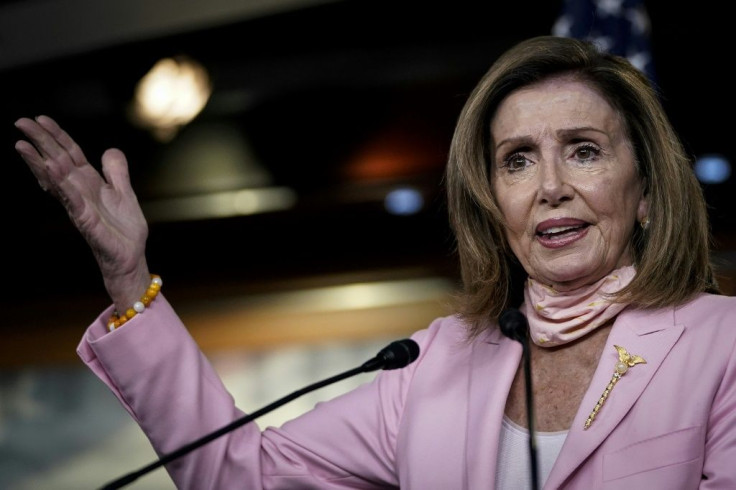When Will Second Stimulus Check Arrive? Could Be Three Weeks Or Two Months From Now

KEY POINTS
- Democrats and Republicans make small progress on negotiations for a fourth stimulus package
- The biggest obstacle remains an agreement over renewing the $600 weekly jobless benefit
- If Congress can strike a deal before its Aug. 7 recess, the second round of EIP checks could come as soon as Aug. 24
Americans could start receiving their $1,200 stimulus checks as soon as three weeks or as late as two months, depending on how soon Democrats and Republicans can reach agreement on a fourth COVID-19 stimulus bill.
Senate Republicans and Democrats made small progress during preliminary talks over the weekend but remain divided over several key issues. They say they hope to strike a deal before Congress’ scheduled Aug. 7 recess, but a breakdown in talks could delay any immediate relief to millions of Americans impacted by the coronavirus pandemic.
Both sides agree on a second round of $1,200 stimulus payments, but they have not found common ground on renewing the weekly jobless benefit that expired July 31. Democrats want to retain the $600 provided by their CARES Act while Republicans seek to reduce the amount to $200 as part of their proposed HEALS Act.
If the two parties can come to agreement before Aug. 7, and if President Donald Trump is quick to sign it, qualified Americans could start seeing their benefits as early as Aug. 24. If negotiations carry over to the next session, which starts Sept. 8, it could be October before benefits begin arrive.
Despite the political divide, there was reason for optimism after hearing the two sides soften their stances ever so slightly. Their remarks were a sharp contrast to previous pessimistic statements two days earlier.
Democrats and Republicans are clear on the urgent need for a second EIP. They agree progress was made Saturday during deliberations among their leaders over the fourth package.
"I guess we would also characterize the discussions as the most productive we've had to date," said Secretary of Treasury Steven Mnuchin. "We went through a long list of policy issues on our side and on their side, as we've suggested in the past, there's clearly a subset of issues where we both agree on very much."
"We anticipate that we will have a bill, but we're not there yet," said House Speaker Nancy Pelosi, D-Calif., on Saturday after discussions with the GOP leaders and White House officials.
Pelosi and Senate Minority Leader Chuck Schumer, D-N.Y., met with Mnuchin and White House Chief of Staff Mark Meadows. Pelosi called the meeting "productive in terms of moving us forward," but both sides remain apart, she added.
Schumer said, "We're not close yet, but it was a productive discussion and now each side knows where they're at."
The leaders had previously spent days trying to reconcile clashing priorities for the latest stimulus package. Relief for schools and small businesses are another place they share common ground.
"The four of us agree that education is timely," said Mnuchin. "There are schools that want to open that will need money for social distancing and PPE (personal protective equipment)." He also added there is "bipartisan support" for small business loans.
Mnuchin's tone is in sharp contrast to his own statement only two days before when he said, “We don’t have an agreement on anything."
It's also sounds more optimistic than Meadows, who Thursday said, “I’m not very optimistic that we will have any kind of an agreement on a comprehensive bill in the near future."
Political posturing aside, both sides are scheduled to resume talks Monday with hopes of passing either the GOP's $1 trillion HEALS Act, the Democrats $3 trillion HEROES Act, or a negotiated bill signed into law quickly.
© Copyright IBTimes 2025. All rights reserved.





















